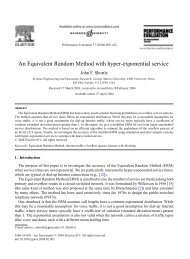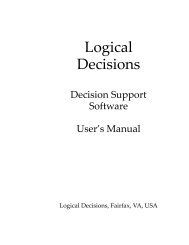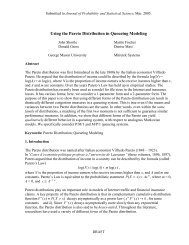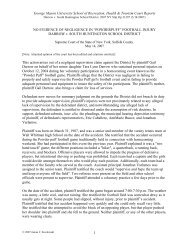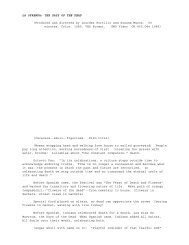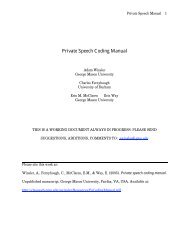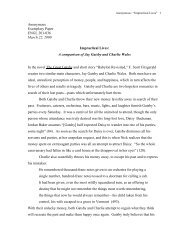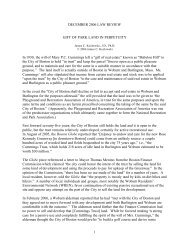AFTER VIOLENCE: 3R, RECONSTRUCTION, RECONCILIATION ...
AFTER VIOLENCE: 3R, RECONSTRUCTION, RECONCILIATION ...
AFTER VIOLENCE: 3R, RECONSTRUCTION, RECONCILIATION ...
You also want an ePaper? Increase the reach of your titles
YUMPU automatically turns print PDFs into web optimized ePapers that Google loves.
Orchestrated violence, as exercised by armies, requires<br />
unconditional obedience, with a very asymmetric chain of command<br />
(as opposed to a guerilla movement). On the other hand there is a<br />
difference in risk-taking, higher for the soldier in the combat<br />
zone than for the ranking officer in the bunker, not to mention<br />
the politicians back home setting the parameters for the war. This<br />
was one reason why the soldiers revolted; another that neither<br />
side was winning. It was a drawn-out stalemate on French soil with<br />
the blockade wrecking the German economy at home.<br />
At stake for the military commands on either side was not<br />
only victory vs defeat but the legitimacy of warfare, challenged<br />
by the soldiers. Only by bringing the World War to an end could<br />
warfare be saved. The Germans certainly did both jobs. N rnberg<br />
and Tokyo did not change that: they are in bello, not ad bellum.<br />
We make this point in order to indicate that even if some<br />
violence survives in one form or the other, warfare is not only a<br />
social institution, but a vulnerable one. Knowledge of visible and<br />
invisible effects, including the opportunity costs to social<br />
development, may hasten its demise. But in the meantime we still<br />
have to deal with the problem of closure. In the next chapters we<br />
shall take up two examples, first how not do it, the Nanking<br />
genocide, then a possible way out: South Africa.<br />
5. Auschwitz, Gulag, Hiroshima, Nanking: Who/What is Guilty?<br />
We are now talking about genocide, mega-violence, the<br />
intended, massive, extermination of categories of people, defined<br />
by nation, class, or otherwise, beyond strategic military<br />
consideration, in this horrible 20th century we are about to leave<br />
35



